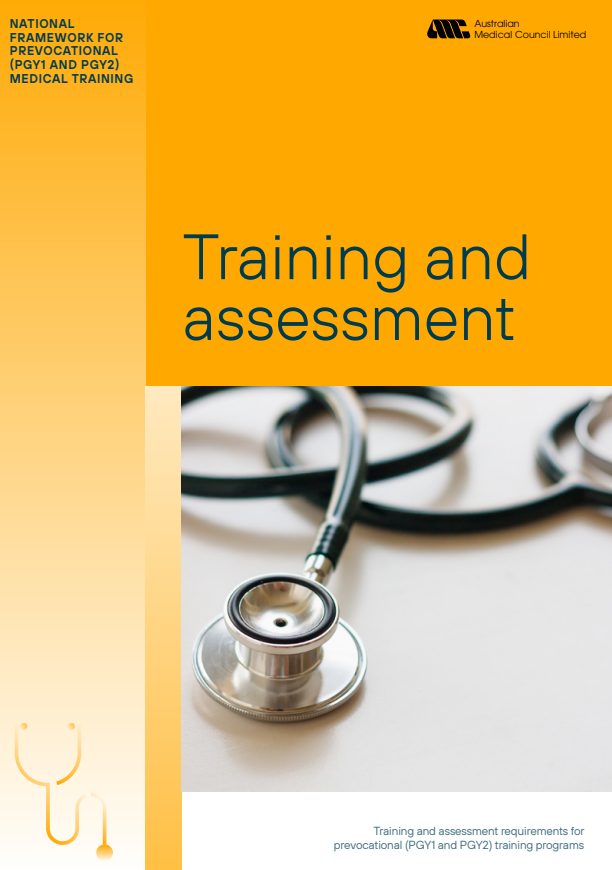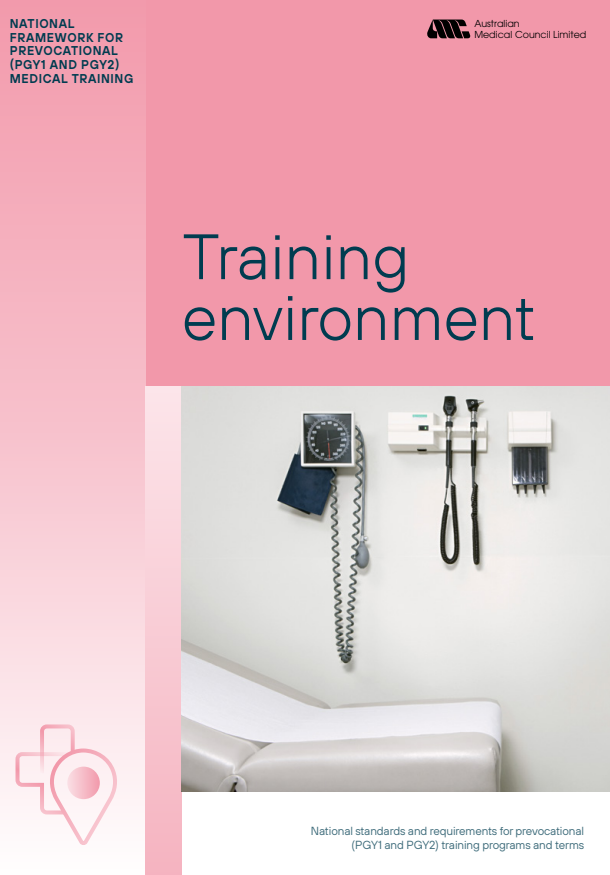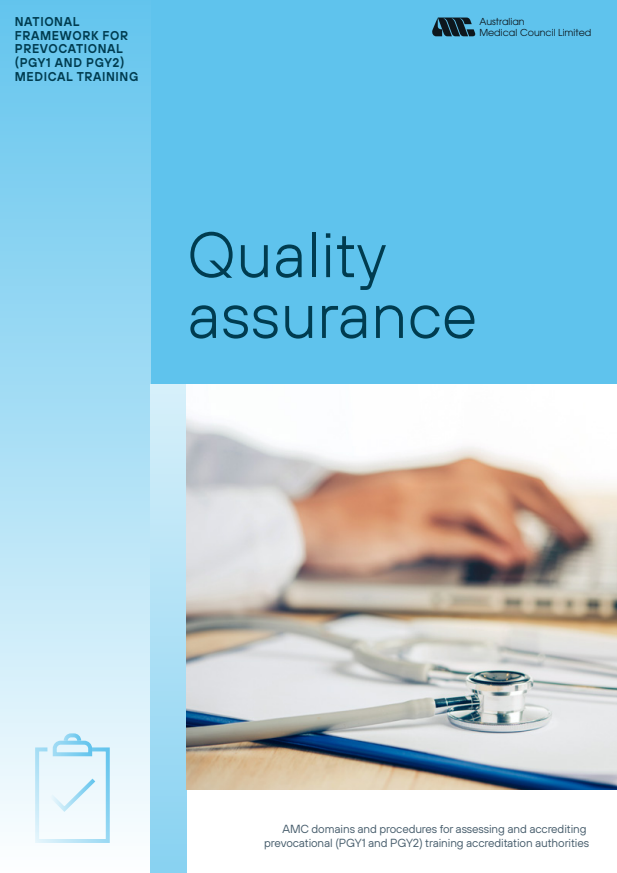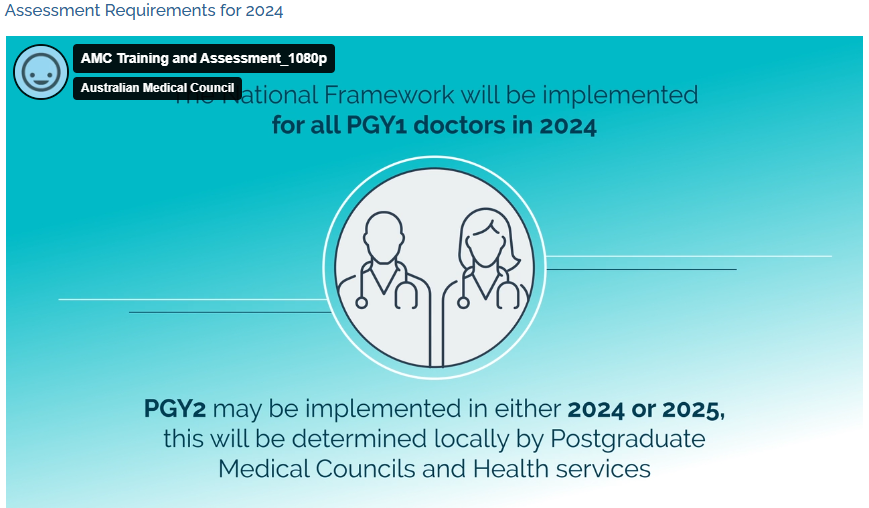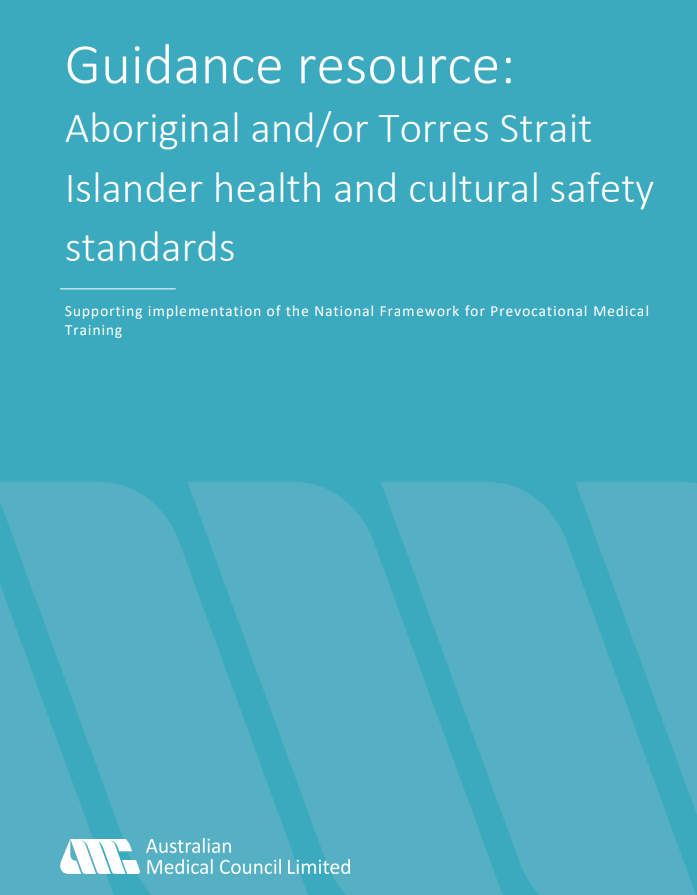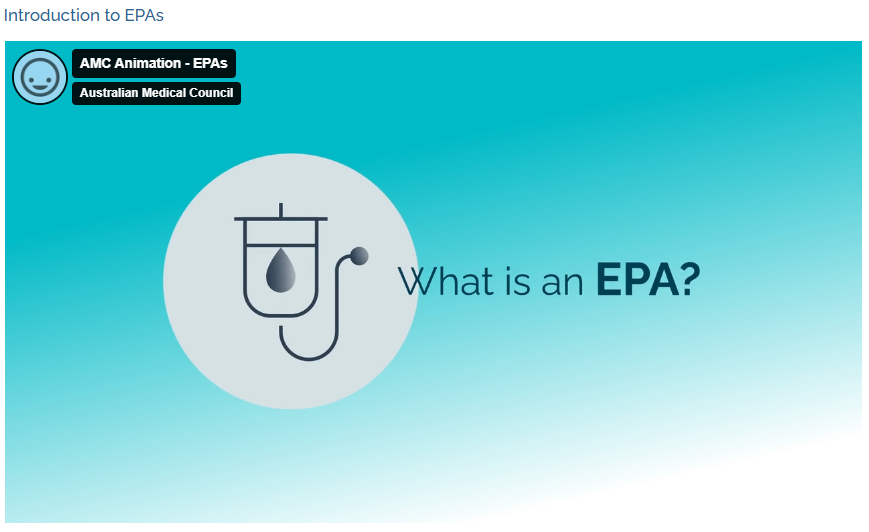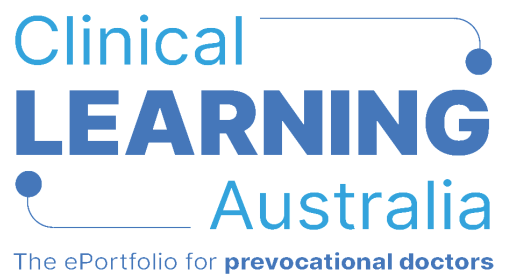AMC Framework Resources
AMC Framework Resources
The Australian Medical Council (AMC) finalised the National Framework for Prevocational (PGY1 and PGY2) Medical Training which commenced implementation for PGY1 doctors in 2024 and PGY2 doctors in 2025.
SA MET is working to support our Local Health Networks (LHN) and staff throughout this transition, and we will provide ongoing updates here and in our newsletter. We have released resources to support our health workers on this site. The AMC have provided a list of AMC resources to support the implementation of the revised National Framework.
As further updates from AMC become available, we will also provide updates here. Alternatively, you can find all the AMC framework documents on the AMC website. Below are resources and links to learn more about some key components of the Prevocational Framework.
Why do we have a new framework?
The framework puts a focus on trainee wellbeing and supervision and aims to enhance prevocational medical education in Australia to better align with the healthcare needs of our population, including an increased emphasis on Aboriginal and Torres Strait Islander health.
- Expanded to PGY2
- New entrustable professional activities (EPAs) that describe key work (focus on clinical training) and assessment of the EPAs (increase opportunities for feedback based on observed clinical practice)
- Global judgment at the end of the year by a panel rather than an individual
- New and strengthened Aboriginal and Torres Strait Islander outcome statements
You’ll be better equipped to treat the population of Australia and you’ll be more supported to do so.
AMC National Framework for Prevocational (PGY1 and PGY2) Medical Training
This is not a two-year internship
While the framework covers a two-year capability and performance framework it is NOT a two-year internship. Where all mandatory requirements are met, general registration will still be granted at the end of PGY1 and the PGY1 internship definition is not changing.
Upon completing PGY2, granted all necessary requirements are fulfilled, an AMC Certificate of Completion will be issued. It is important to note:
- Entry into a College Training Program during PGY2, prior to receiving your Certificate of Completion, is still possible.
- Trainees can still take leave between PGY1 and PGY2.
Clinical Experiences
From 2024, accredited intern posts transitioned from being a core medicine / emergency / surgical or non-core term to being identified across 1 or 2 clinical patient care experiences (see below). This change aligns South Australia’s accredited intern posts with the revised AMC National Framework for Prevocational Medical Training and Australian Health Practitioner Regulation Agency’s registration standard.
Assessment Review Panels
Each LHN should have established an Assessment Review Panel early in 2024. The panel will be comprised of at least three members with sound understandings of procedural fairness and prevocational training requirements. By considering the assessment outcomes from EPAs, end-of-term, and midterm assessments, where applicable the panel will decide whether the prevocational outcomes have been achieved at the end of the year.
More information can be found in the AMC Training and Assessment document.
information for interns
The Australian Medical Council (AMC) National Framework for Prevocational (PGY1 and PGY2) Medical Training is not a two-year internship, meaning PGY1 doctors will still receive general registration after successful completion of the PGY1 year.
Guide for PGY1 and PGY2 doctors
Guide to Prevocational Training in Australia for PGY1 and PGY2 Doctors
training and assessment – requirements for prevocational trainees
- All prevocational doctors to have beginning of term discussions.
- Mid and end of term assessments using the revised Term Assessment Form.
- Achievement of the AMC Prevocational Outcome Statements.
- Point of general registration remains at satisfactory completion of PGY1.
- Prevocational doctors completing training within the Framework will be exempt from Medical Board of Australia’s new CPD requirements.
term requirements and structure
Under the new Framework, interns must complete a minimum of four 10 week terms across the clinical patient care categories. This replaces the core term requirements for general surgery, general medicine and emergency medicine under the previous framework. Some Local Health Networks (LHNs) may decide to change the structure of their rotations from five rotations a year to four.
Entrustable professional activities
Prevocational doctors will be assessed on the four Entrustable Professional Activities (EPAs) at least ten times throughout each year.
- The introduction of Entrustable Professional Activity (EPA) assessments is a new requirement for assessment of prevocational trainees as a result of the development of the Framework.
- While EPA assessments will not be a requirement for satisfactory completion until after 2025, Local Health Networks (LHNs) may choose to rollout EPA assessments from 2024 to increase opportunities for feedback.
- Prevocational doctors must complete at least two EPAs per term, equating to ten EPA assessments within a 12-month period.
The supervisor’s assessment of an EPA is not a pass or fail. It is a judgement of the prevocational doctor’s degree of entrustability for the work being observed and is designed for constructive feedback. Therefore, there will not be any remediation or disciplinary action following an assessment of an EPA where constructive feedback has been provided on areas for development. The purpose of EPAs and term assessments is for supervisors to discuss further areas of development which can be achieved over the prevocational training years.
*See more information below on Entrustable Professional Activities.
prevocational outcome statements
Outcome statements and assessment forms should already be familiar to you and the concept will continue in the framework. There will be some improvements but we’re confident this will be an easy transition.

Below is where you will find information within the AMC’s Training and Assessment document:
- The description of the prevocational outcome statements (pg. 10-19)
- How the outcome statements guide the global assessment and “certifying completion” process, (section 3A pg. 47-51 and 57-59)
- Term assessment forms, (pg. 61 and 67-74)
- The Accreditation Standards related to Outcome Statements (which can be found in the AMC’s Training Environment document):
- Standard 2.2 Training Requirements (pg. 17)
- Standard 2.3 Assessment requirements (pg. 18)
- Standard 3.1 Work-based teaching and training (pg. 21)
- Standard 3.3 Supervisor training and support (pg. 23)
- Standard 3.4 Formal education program (pg. 23-24)
- Standard 4.3 Communication with prevocational doctors (pg. 29)
- Requirements for programs and terms related to Outcome statements (pg. 34-37)
interstate and rural employment
The new Framework does not impact prevocational doctors’ opportunities to work interstate or in rural areas. For example, a prevocational doctor could complete their internship in metropolitan Victoria and apply to a rural hospital in South Australia for PGY2 or vice versa. This is also applicable to prevocational doctors working in different Local Health Networks (LHNs) in PGY1 and PGY2 in South Australia.
specialist training
Entry into a specialist training program is permitted during PGY2 where the college allows. Some colleges will require certificate of completion for PGY2 under the AMC National Framework for entry – for confirmation check with the college.
help and support
If at any time you have concerns about your personal wellbeing, workload, supervision or have witnessed or experienced bullying and harassment, it is important that you seek help. There will be a number of individuals in your LHN who have the experience and authority to help, including your Director of Clinical Training (DCT), your Medical Education Officer (MEO) or your Executive Director of Medical Services (EDMS). Alternatively, you can contact the SA MET Unit for support by emailing healthsamet@sa.gov.au.
supervisor resources
The Australian Medical Council (AMC) National Framework for Prevocational (PGY1 and PGY2) Medical Training has been developed to support medical graduates to achieve their career goals to ensure safe, high-quality care for healthcare consumers. This requires strong, constructive interactions and support from supervisors.
- Prevocational doctors must be supervised at a level appropriate to their experience and responsibilities at all times.
- In each term the supervision arrangements should be clear and explicit and be included in the term description.
cultural health and safety standards
aboriginal and / or torres strait islander health and Cultural Safety Standards
The AMC National Framework has strengthened the requirements for Aboriginal and Torres Strait Islander health content across the Framework to better support Aboriginal and Torres Strait Islander patients and doctors.
The AMC Guidance resource: Aboriginal and/or Torres Strait Islander health and cultural safety standards document which provides guidance for meeting Aboriginal and/or Torres Strait Islander health related Prevocational outcome statements and National standards within the National Framework.
Entrustable Professional Activities
Entrustable Professional Activities (EPAs) describe the essential work performed by PGY1 and PGY2 doctors. EPAs are a new concept for prevocational medical training and will be used alongside mid-term and end-of-term assessments to increase opportunities for prevocational doctors to receive valuable feedback. The EPAs in the framework have been developed, with permission, using the Royal Australasian College of Physician Basic Training Curriculum EPA structure and content.
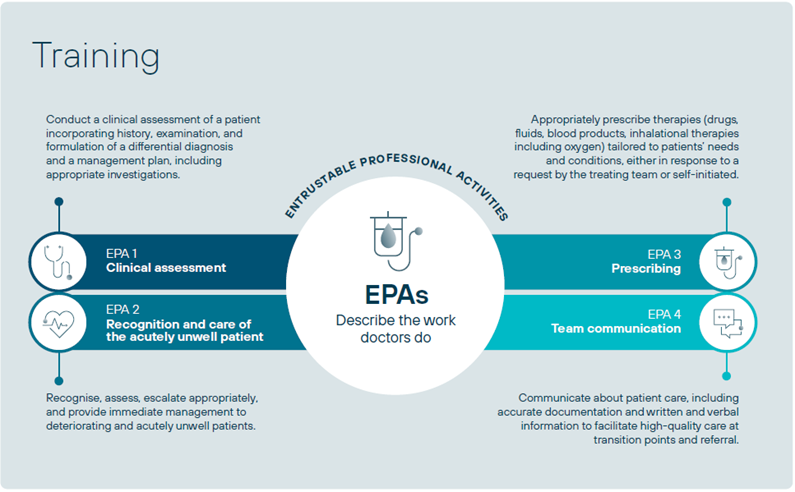
AMC Training and Assessment (pg.21)
EPA Forms and Resources
assessment forms
EPA CLINICAL DISCUSSION VIDEOS
With special thanks to Dr Andrew Vanlint, Medical Education Consultant at the Northern Adelaide Local Health Network for producing the EPA clinical assessment discussion videos and permitting their use via SA MET.
further amc resources on entrustable professional activities
The below resources provided by the AMC, are very adaptable and include a facilitator deck providing the choice to swap in different videos to suit your needs and the training example you want to provide. The videos are linked in the facilitator guide for you to embed in the EPA assessor training slide deck PowerPoint at your discretion.
more information
You can find more information in the AMC’s Training and Assessment document:
- The description of the EPAs, assessment of EPAs and how they fit within the broader assessment schedule (pg. 45-50)
- Relationship between outcome statements, end-of-term assessments, and assessments of EPAs (pg. 51)
- How EPAs are utilised for improving performance (pg. 53-54)
- Assessment requirements of EPAs and the “Certifying Completion” process (pg. 57-59)
- EPA Assessment forms (pg. 75-86)
- The Accreditation Standards related to EPAs (which can be found in AMC’s Training Environment document). Standard 2.3 Assessment requirements (pg. 18)
eportfolio - CLINICAL LEARNING AUSTRALIA
Preliminary information is available in AMC’s Training and Assessment document pg. 43.
Clinical Learning Australia (CLA), the ePortfolio for prevocational doctors is live, with further resources available on the Clinical Learning Australia website.
ACCREDITATION STANDARDS
The revised AMC National Standards from the Australian Medical Council (AMC) National Framework for Prevocational Medical Training will formally come into effect in South Australia from 1 January 2024.
The accreditation team have prepared further accreditation resources to support the Local Health Networks as we transition to the revised National Standards.



